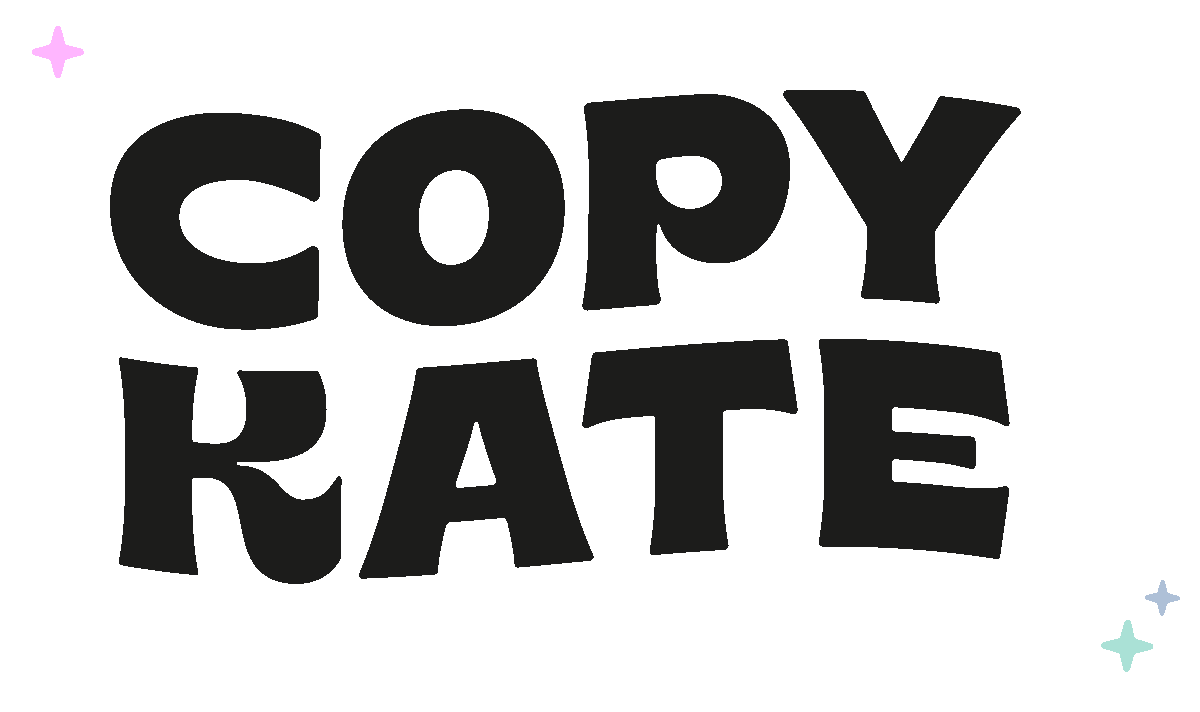3 buzzwords to ban from your copy for good 👋
Imagine you're scrolling through your inbox, and nearly every email promises a "cutting-edge," "innovative," or life-changing product that's guaranteed to "elevate" your existence.
🤮🤮🤮
As a copywriter and brand voice strategist, I've spent years helping brands cut through the clutter and let me tell you, buzzwords are one of the biggest obstacles standing between your message and your audience.
Buzzwords might seem harmless, just trendy words meant to grab attention, but they actually dilute your message and make you blend into the background noise. If you genuinely want to create copy that’s compelling, authentic, and resonates deeply with your audience, it's crucial to ditch vague language for good.
Today, let's tackle three of the biggest offenders head-on: "cutting-edge," "innovative," and "elevate." By eliminating these tired buzzwords and embracing clarity instead, you'll immediately make your copy stronger, more credible, and infinitely more engaging.
Here's how:
Let’s ban “cutting-edge”
Ah, "cutting-edge." It’s the go-to adjective when you can’t quite describe why your product or service is actually better. Everyone wants their offering to sound modern, sleek, and a step ahead of the competition, but here's the problem: when everything claims to be cutting-edge, nothing actually stands out. It’s like walking into a coffee shop where every drink claims to be "life-changing." Eventually, you just shrug, pick a latte, and hope for the best.
When you use "cutting-edge," you're hoping your audience will fill in the blanks. But today's readers see right through it. They want specifics, not vague promises. Instead of saying your technology is "cutting-edge," tell me exactly why it's exciting. Maybe your software saves businesses five hours a week, or your skincare product uses sustainably sourced ingredients proven to improve skin elasticity by 30%. Specifics grab attention; buzzwords get glossed over.
What to say instead:
Try precise, benefit-driven statements:
"Our software cuts your admin tasks in half."
"Experience clearer skin in just 14 days."
Let’s ban: “Innovative”
"Innovative" has been watered down so much it’s practically transparent. Every brand, from toothbrushes to tech startups, loves to slap "innovative" onto their descriptions. But what does it really mean? Technically, "innovative" implies something is new or different, but that's pretty vague. Is it new because it's slightly shinier, has one extra feature, or did you just switch the packaging colour to mint green?
The trouble is, audiences have grown sceptical. When they read "innovative," they often translate it into "not quite sure what’s special about this." It's a filler word that dilutes your message instead of strengthening it. Readers appreciate honesty, not vague claims that leave them guessing.
Instead of telling your customers you're innovative, show them exactly what you're doing differently and why it matters. Did you redesign packaging to reduce waste by 40%? That's innovative, just don't call it that. Let the numbers speak for themselves.
What to say instead:
Highlight unique features or tangible improvements:
"We've reduced packaging waste by 40%."
"Our new feature means you’ll get more done, faster."
Let’s ban: “Elevate”
"Elevate" is the shiny unicorn of buzzwords- sounds magical and lofty, but what exactly is being elevated? Sales? Mood? My coffee table?
Brands often reach for "elevate" when they're trying to sound upscale, sophisticated, or transformative. But unless you’re installing a literal elevator, this buzzword feels a bit too vague and fluffy. It’s like promising customers you'll "level up" their lives without ever explaining how. And no matter how great your intentions, vague promises rarely persuade anyone.
Instead of promising to "elevate" something, get specific about what your product or service improves. If your scented candles help people unwind after a stressful day, say exactly that. If your course helps entrepreneurs double their leads, make that crystal clear. People are more likely to believe (and buy) when you give them concrete reasons instead of poetic promises.
What to say instead:
Offer clear, relatable benefits:
"Feel less stressed after just one session."
"Double your leads without doubling your workload."
The takeaway
Buzzwords are annoying, sure, but worse than that, they obscure what makes your product or service truly special, making you sound like every other business out there. And in today's crowded marketplace, sounding like everyone else is a fast track to being forgotten.
The good news is, ditching these buzzwords doesn't just clear out linguistic clutter, it instantly makes your copy sharper, more authentic, and ultimately more persuasive. And isn’t that what every good brand is aiming for?
So next time you're tempted to sprinkle in a bit of "cutting-edge," call something "innovative," or promise to "elevate" someone's life, pause and ask yourself: Is there a clearer, more compelling way to say this?… I promise there is!
